Israeli attacks kill six across Gaza, army issues new ‘evacuation order’
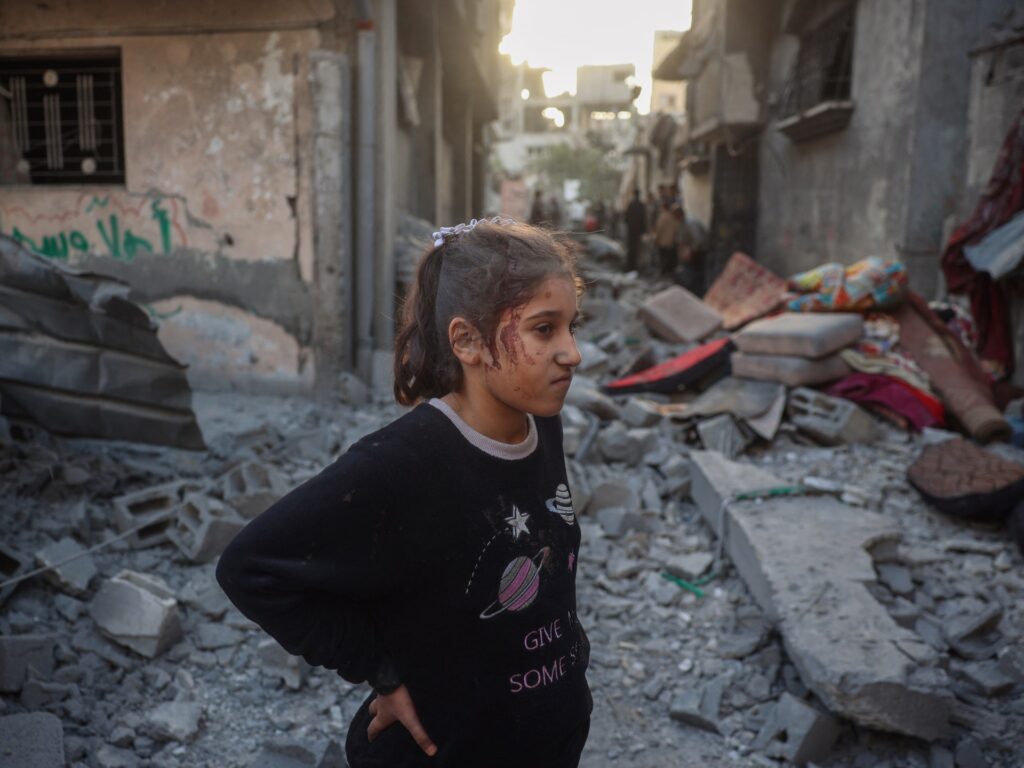
At least six people have been killed in Israeli attacks across Gaza amid a new so-called evacuation order issued by Israeli forces in a Gaza City suburb. On Sunday, Israeli attacks have so far killed one person in Nuseirat and two in Maghazi, both in central Gaza, as well as three people in Rafah, southern Gaza. In northern Gaza, which Israeli forces have besieged since early October, Gaza’s Ministry of Health said the Kamal Adwan Hospital was attacked, injuring its director, Hussam Abu Safia. In a video circulated by the ministry on Sunday, Abu Safia said the Israeli drone attack would “not stop us from completing our humanitarian mission and we will continue to do this job at any cost”. “We are being targeted daily. They targeted me a while ago but this will not deter us,” he said from his hospital bed. Gaza Civil Defence spokesman Mahmoud Basal told the AFP news agency that Abu Safia suffered an injury to his back and left thigh due to metal fragments but that he was now in a “stable” condition in hospital. Kamal Adwan Hospital is one of the three hospitals that are barely operating in northern Gaza after Israeli forces detained and expelled medical staff and prevented emergency medical equipment from reaching. Reporting from Deir el-Balah, central Gaza, Al Jazeera’s Hind Khoudary said the attack on Abu Safia was typical of Israeli attacks on Palestinians in intensive care units in northern Gaza, unable to receive medical aid due to a blockade. “In the northern Gaza Strip, there are no civil defence teams, ambulances or paramedics. This is also adding more misery because even if you can get the chance for anyone to help rescue you, there are no teams to help you or save your life,” Khoudary said. In the past few weeks, Israel has said it facilitated the delivery of medical and fuel supplies to northern Gaza, but the amount of aid going in is still below the needs of the residents. In Jabalia, Beit Lahiya and Beit Hanoon, towns in northern Gaza that are being heavily attacked, residents told the Reuters news agency that Israeli forces had blown up hundreds of houses in the latest attacks. Palestinians in Gaza say Israeli tactics seem to be directed at depopulating the area completely and creating a buffer zone, a claim denied by Israel. Gaza’s Health Ministry said on Sunday that at least 44,211 people have been killed in Israeli attacks, and 104,567 others have been wounded. Forced displacement Meanwhile, the Israeli army issued evacuation orders in the Shejaia suburb of eastern Gaza City on Sunday. “For your safety, you must evacuate immediately to the south,” army spokesperson Avichay Adraee wrote on X. Adraee’s address came after Hamas claimed a rocket volley on Saturday, which it said had targeted an Israeli army base over the border. On social media, footage showed Palestinians leaving Shejaia on donkey carts and rickshaws moving to southern Gaza. Since the war began 13 months ago, Israel has issued several evacuation orders, each time forcing Palestinians to move from places previously designated as “safe zones”. The orders have been criticised as effectively being tantamount to the forced displacement of Palestinians. Adblock test (Why?)
The West, the ICC, and ‘mtu wetu’ in Israel

The arrest warrants for Israel’s Prime Minister Benjamin Netanyahu and former Defence Minister Yoav Gallant, issued by the International Criminal Court (ICC), have brought back not-so-fond memories to many Kenyans. More than a decade ago, then Kenyan President Uhuru Kenyatta and his deputy – current President William Ruto – became the first incumbent heads of state or government to actually face an ICC trial, having been indicted before they got into office. However, while both Kenyatta and Ruto chose to cooperate with the court – at least on the face of it – and attended their trials, thus obviating the need for an arrest warrant, it is unlikely that Netanyahu and Gallant will be taking a trip to The Hague any time soon. Kenyatta and Ruto were accused of being responsible for the violence that followed the country’s disputed 2007 election, in which more than 1,300 people lost their lives. The two had been on opposing sides of the conflict and were alleged to have organised and funded “tribal” militia to carry out killings. To date, only a handful of people have ever been prosecuted for the murders, rapes and mutilation that led to the forcible displacement of 660,000 people, and it was only after the Kenyan state proved unwilling to act that the ICC stepped in. Similarly, when he applied for warrants for the Israeli leaders in May, ICC Prosecutor Karim Khan – who coincidentally headed Ruto’s defence team – also indicated he would be happy to defer prosecution if Israel’s justice system shows any willingness to take action against Netanyahu and Gallant and “engage in independent and impartial judicial processes that do not shield suspects and are not a sham”. The ICC judges have now agreed that there are reasonable grounds to believe the two bear criminal responsibility for the many crimes committed by Israel against the Palestinians during its ongoing genocidal assault on Gaza. With an official death toll of more than 44,000, Gaza has witnessed murders, rapes and displacement on a vast scale, as well as mass starvation, and the deliberate targeting of schools, hospitals and places of worship. Many have complained about the seven-month-long delay in the ICC judges issuing the arrest warrants, but Kenyans had to wait for two years to have the ICC prosecutor send a request for an investigation and then another five months for the court to approve it. It then took another 12 months for the actual indictment of specific individuals – six of them – to be handed down. Thus, by comparison, the Palestine cases have moved much faster. Among the reasons for the delay in the Palestine case were the numerous briefs challenging the court’s jurisdiction and the admissibility of the allegations. There was also a lot of pressure put on the ICC by Israel and its Western friends. There were Israeli attempts to intimidate the court even before the war started last year, with Khan’s predecessor, Fatou Bensouda, facing threats by the Mossad not to launch an investigation into Israel’s war crimes of 2021. Khan now himself faces accusations of sexual misconduct. It is notable that few Western nations came to Kenyatta’s and Ruto’s aid. On the contrary, there was more than a subtle hint given to Kenyans that electing Kenyatta and Ruto would be a bad idea – that “choices have consequences”. I am not saying they should have opposed the duo’s arraignment, but there is more than a whiff of double standards here. It does seem that there is more of an interest in seeing justice done when those in the dock are Africans, and not just anti-Western. That point is driven home when one considers how the indictments of Israeli officials have been framed in the Western press. The Guardian, for example, described it as “the first time a western ally from a modern democracy has been charged with war crimes and crimes against humanity by a global judicial body”. This account comes as a surprise to Kenya, which for well over six decades has considered itself a “Western ally” and which – having held regular elections throughout that time – can be described as something of a “modern democracy”, whatever that means. Unless, of course, these are euphemistic descriptors of more problematic relationships. Kenyans have a name for this sort of thing: the “mtu wetu [our guy] syndrome”. Whenever our politicians find themselves being investigated or – God forbid! – charged with crimes, they try to rally their ethnic kinsmen around the idea that it is the “tribe” being targeted. The mobilisation of an imagined identity is a political tactic that is very effective in scaring off prosecutors and intimidating judges both locally and internationally. “Mtu wetu” is how Kenyatta and Ruto were able to avoid prosecution at home and then instrumentalise their control of the Kenyan state to undermine their cases at the ICC. It is why the ICC found itself accused of “race hunting” – of focusing on prosecuting Black Africans, an allegation that conveniently ignored the fact that most of the situations the court was pursuing had been referred to it by African governments. “Mtu wetu” is why Netanyahu today accuses the court of anti-Semitism, suggesting his prosecution is an attack on all Jews. “Mtu wetu” is why suddenly Germany seems less keen on upholding its obligations under international law, and why US politicians are threatening all and sundry, even those in Canada and Europe who perhaps mistakenly thought they would be always part of the tribe. It is sadly ironic that on the 140th anniversary of the Berlin West Africa Conference – which set the stage for European colonisation of Africa and which subsequently introduced the scourge of tribalism to the continent – that the same irrational and totalising conception of identity is being weaponised in the West to defend people accused of some of the worst categories of crimes imaginable. The views expressed in this article are the author’s own and do not necessarily reflect Al Jazeera’s
Far right in strong position as Romania votes in presidential election
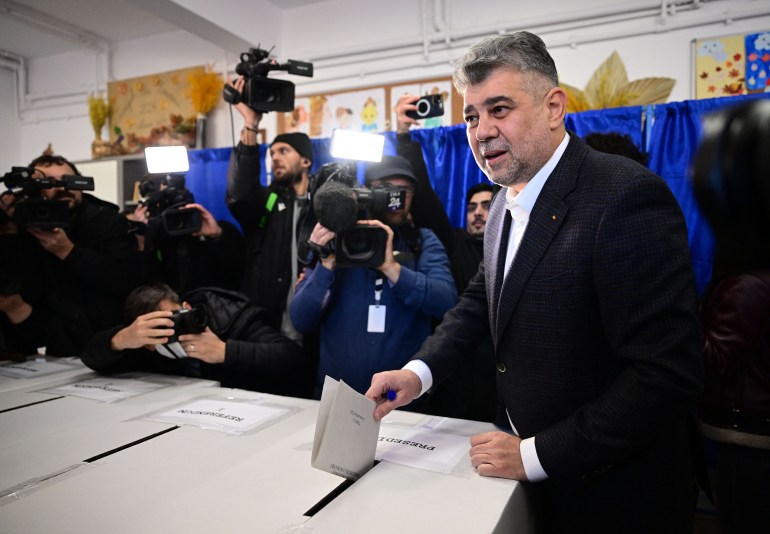
Social Democrat Marcel Ciolacu and far-right George Simion are the most likely to move on to a run-off on December 8. The first round of presidential elections has begun in Romania, with voters choosing a replacement for the outgoing President Klaus Iohannis. Romanians are choosing between 13 candidates on Sunday, with the top two moving on to a second round of voting on December 8 if no single candidate gets more than 50 percent of the vote in the first round. That second presidential vote may be between current Social Democratic Party (PSD) Prime Minister Marcel Ciolacu and the far-right leader of the Alliance for the Union of Romanians (AUR), George Simion. Social Democratic Prime Minister Marcel Ciolacu casts his ballot in the Romanian presidential election on November 24, 2024 [Daniel Mihailescu/AFP] By 12:00 GMT, Romania’s central election bureau said the voter turnout was 27 percent. Romanians have until 19:00 GMT to cast their votes. Ciolacu has been leading in the polls with 25 percent compared with Simion, who according to opinion polls holds the support of 15 to 19 percent of the country. Romanian political analyst Cristian Pirvulescu said that the AUR party could get a boost in the parliamentary election slated for December 1 if Simion performs well in the presidential vote, and other right-leaning voters could coalesce around Simion if he reaches the run-off. “Romanian democracy is in danger for the first time since the fall of communism in 1989,” Pirvulescu told the news agency AFP. Ciolacu’s PSD has shaped the country’s politics since 1990, but this election comes at a tumultuous time in the European Union member state amid rising inflation and the ongoing war in neighbouring Ukraine. Simion has been able to tap into an affordability crisis in the country. While inflation is trending downwards from a record 10 percent last year, the far-right candidate has tapped into voter frustrations about economic issues. Presidential candidate and leader of the far-right Alliance for the Union of Romanians, George Simion, greets the press outside a polling station in Bucharest, Romania, November 24, 2024 [Andrei Pungovschi /AFP] Inflation is expected to be 5.5 percent by the end of 2024. Simion opposes sending military aid to Ukraine – a country with which Romania shares a 650-kilometre (400-mile) border. Simion, who has repeatedly praised United States President-elect Donald Trump, has tapped into a hard right message that appears to be growing in popularity in both the US and Europe. Borrowing from the Trump playbook, Simion has warned of possible electoral fraud, and has also opposed sending military aid to Ukraine. Simion has also campaigned for unification with Moldova, which has renewed a five-year ban on him entering the country. “We are at a point where Romania can easily divert or slip towards a populist regime because [voter] dissatisfaction is pretty large among a lot of people from all social strata,” Cristian Andrei, a political consultant, told The Associated Press news agency. “And the temptation for any regime, any leader, will be to go on a populist road.” Adblock test (Why?)
Jhansi hospital fire: Death toll spikes to 17, after 2 more rescued babies die out of 39 infants rescued infants
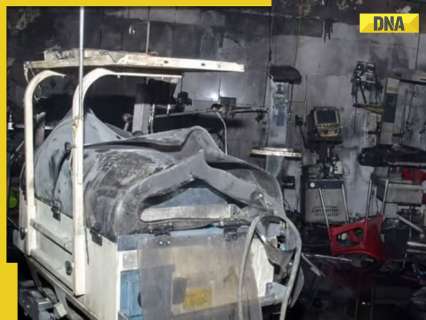
The birth weight of both infants was 800 grams and one of them also had a hole in the heart, he added. Meanwhile, Congress sources said on Sunday that the party’s state chief Ajay Rai and Barabanki MP Tanuj Punia would travel to Jhansi and visit the medical college. They will also meet the families
‘Never claimed BJP would win election’, says Himanta Biswa Sarma after Jharkhand poll results
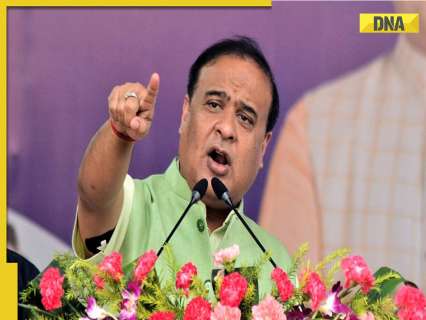
Assam Chief Minister and Bharatiya Janata Party (BJP) leader Himanta Biswa Sarma said on Sunday that he had “never claimed that the party would win the assembly election in Jharkhand and form the next government”, news agency PTI reported.
‘Odisha is land of saints and scholars, progress of Northeast priority’: PM Modi at Odisha Parba 2024
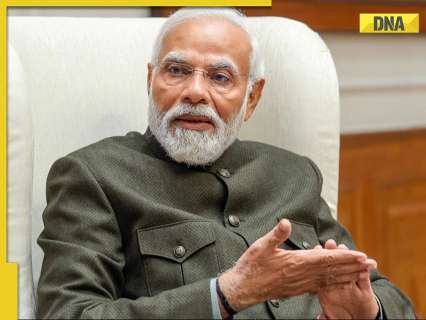
Addressing the ‘Odisha Parba 2024’ in the national capital, PM Modi said that “Odisha has always been a land of saints and scholars.
Three dead, dozens injured in violent clash during Mosque survey in Uttar Pradesh

A clash during a mosque survey in Uttar Pradesh’s Sambhal led to three deaths, injuries to officials, and stone-pelting by a mob, prompting a magisterial inquiry.
Fred Harris, former Democratic senator from Oklahoma and presidential candidate, dies at 94
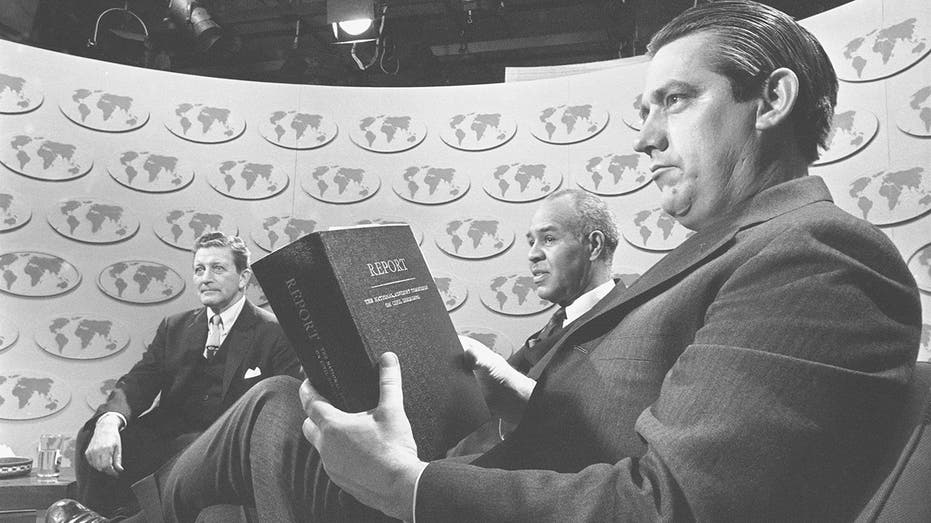
Fred Harris, a self-described populist Democrat from Oklahoma who served eight years in the U.S. Senate before an unsuccessful campaign for president in 1976, has died. He was 94. Harris’ wife, Margaret Elliston, confirmed his death to the Associated Press in a text message on Saturday, writing: “Fred Harris passed peacefully early this morning of natural causes. He was 94. He was a wonderful and beloved man. His memory is a blessing.” Harris, who was living in New Mexico, died in a hospital in Albuquerque, Elliston told The New York Times. Harris first served for eight years in the Oklahoma State Senate after winning election in 1956. He then launched his career in national politics in 1964 when he won a Senate race to fill the vacancy left by Sen. Robert S. Kerr, who died in January 1963. GAME SHOW HOST CHUCK WOOLERY OF ‘WHEEL OF FORTUNE,’ ‘LOVE CONNECTION,’ DIES AT 83 “I’ve always called myself a populist or progressive,” Harris said in a 1998 interview. “I’m against concentrated power. I don’t like the power of money in politics. I think we ought to have programs for the middle class and working class.” As a U.S. senator, Harris was a member of the National Advisory Commission on Civil Disorders, the so-called Kerner Commission, appointed by then-President Lyndon Johnson to investigate the urban riots of the late 1960s. The commission released its report in 1968, declaring, “our nation is moving toward two societies, one black, one white — separate and unequal.” Thirty years later, Harris co-wrote a report that concluded the commission’s “prophecy has come to pass,” stating that “the rich are getting richer, the poor are getting poorer and minorities are suffering disproportionately.” COLIN PETERSEN, BEE GEES ORIGINAL DRUMMER, DEAD AT 78 In 1976, Harris ran a failed bid to earn the Democratic presidential nomination, bowing out of the race after poor showings in early contests. The more moderate Jimmy Carter went on to win the presidency. Harris moved to New Mexico that year and became a political science professor at the University of New Mexico. He wrote and edited more than a dozen books, mostly on politics and Congress. In 1999, he broadened his writings with a mystery set in Depression-era Oklahoma. Harris was born Nov. 13, 1930, in a two-room farmhouse near Walters, in southwestern Oklahoma. The home had no electricity, indoor toilet or running water. He worked on the farm starting at age 5, driving a horse in circles to supply a hay bailer with power – earning 10 cents a day. He later worked part-time as a janitor and printer’s assistant to help pay for his education at the University of Oklahoma, where he earned a law degree in 1954. He practiced law in Lawton before beginning his career in politics. CLICK HERE TO GET THE FOX NEWS APP Harris married his high school sweetheart, LaDonna Vita Crawford, in 1949, and had three children, Kathryn, Byron and Laura. After the couple divorced, Harris married Margaret Elliston in 1983. The Associated Press contributed to this report.
For first time in six decades, Maharashtra will not have Leader of Opposition, here’s why
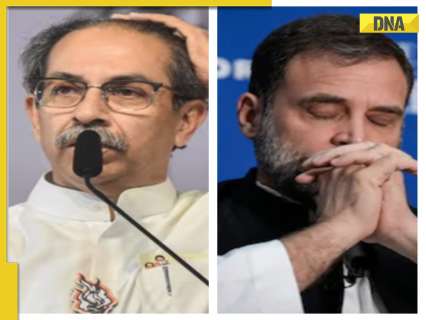
For the first time in six decades, Maharashtra will not have a Leader of Opposition (LoP) in the state assembly.
Maharastra Assembly Election: Swara Bhasker accepts Fahad Ahmad’s defeat in ‘David-Goliath battle’ after questioning EVM
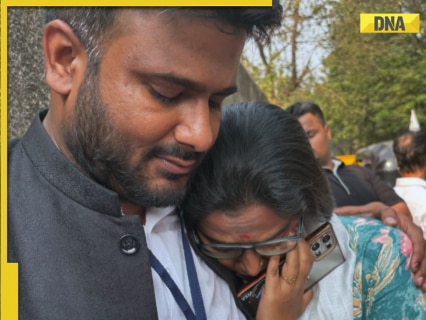
Swara’s appreciation post comes a day after she questioned the integrity of Electronic Voting Machines (EVMs) during the Anushakti Nagar assembly seat count after a steady lead for Fahad dramatically overturned after rounds 17, 18, and 19.
